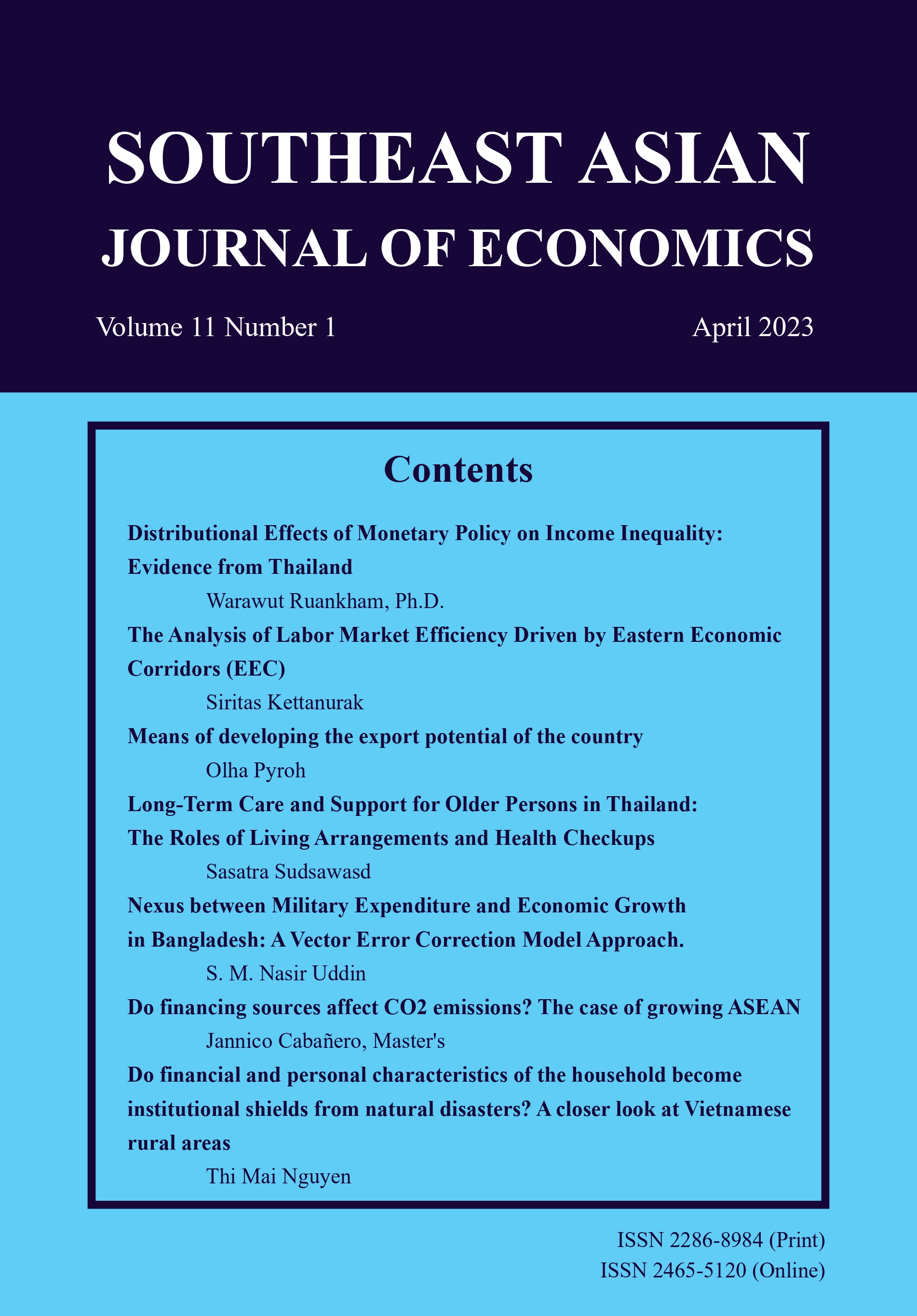Nexus between Military Expenditure and Economic Growth in Bangladesh: A Vector Error Correction Model Approach
Keywords:
military expenditure, economic growth, defense burden, gross domestic product, BangladeshAbstract
Military expenditure is considered an influential factor in gross domestic product. This study investigates the relationship between military expenditure and gross domestic product in Bangladesh. Time series data, econometric techniques, and some robustness tests are used in this analysis. The results reveal that a 1% increase in military expenditure leads to a 0.74% increase in gross domestic products in the long run. A unidirectional causal relationship is identified, meaning that military expenditure causes economic growth. An external shock on military expenditure to gross domestic product and gross domestic product to itself have a positive effect, whereas an external shock on military expenditure to itself is decreasing, and gross domestic product is reacting to a shock of military expenditure that initially increases and then remains almost steady in the following years. Hence, military expenditures have a positive impact on economic growth in Bangladesh.
Downloads
Published
How to Cite
Issue
Section
License

This work is licensed under a Creative Commons Attribution-NonCommercial-NoDerivatives 4.0 International License.
The submission of a manuscript implies that the paper is an original work and has not been published elsewhere. The author(s) authorize the journal to reproduce or distribute the paper in printed or other electronic forms.







